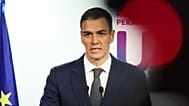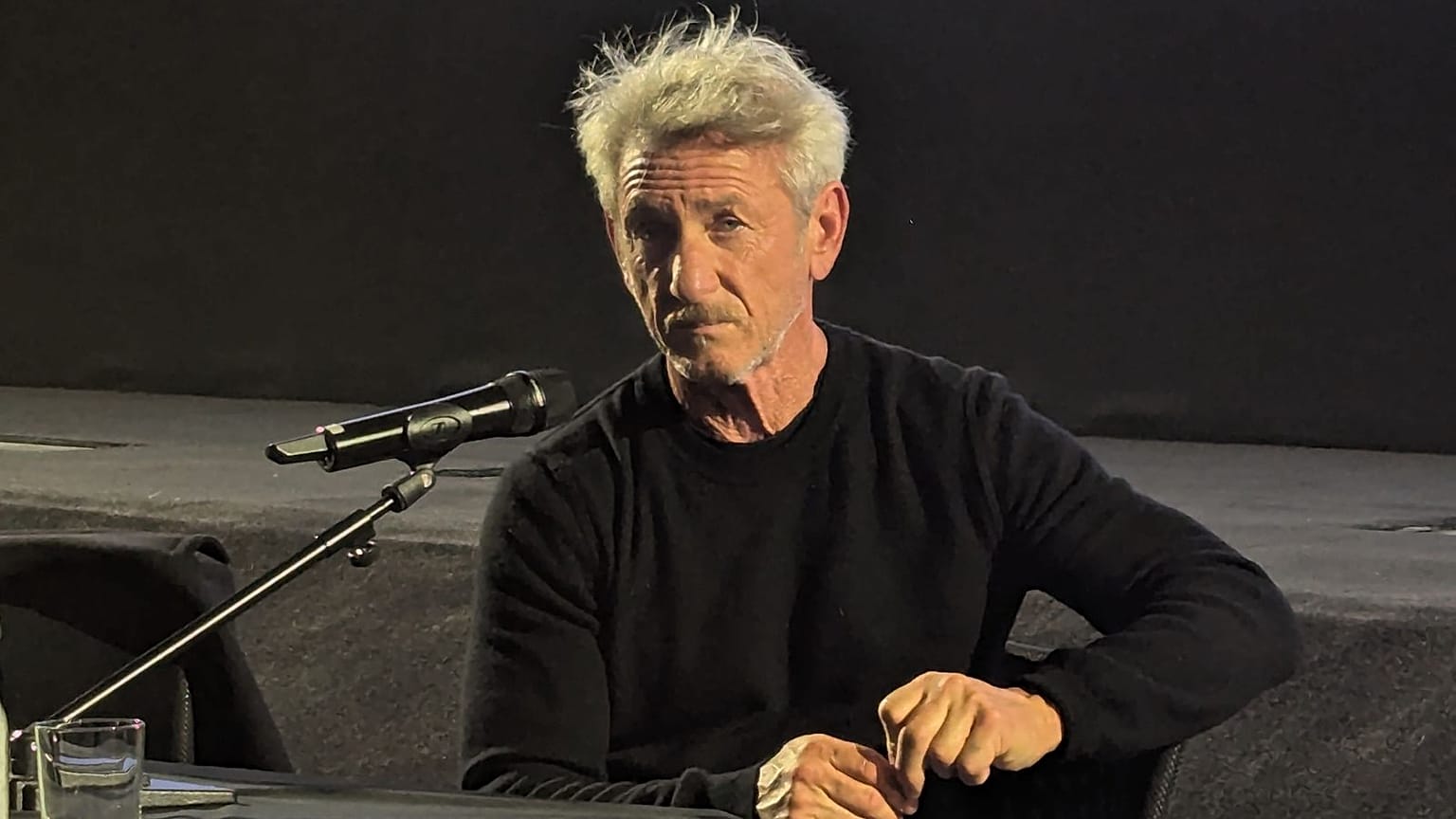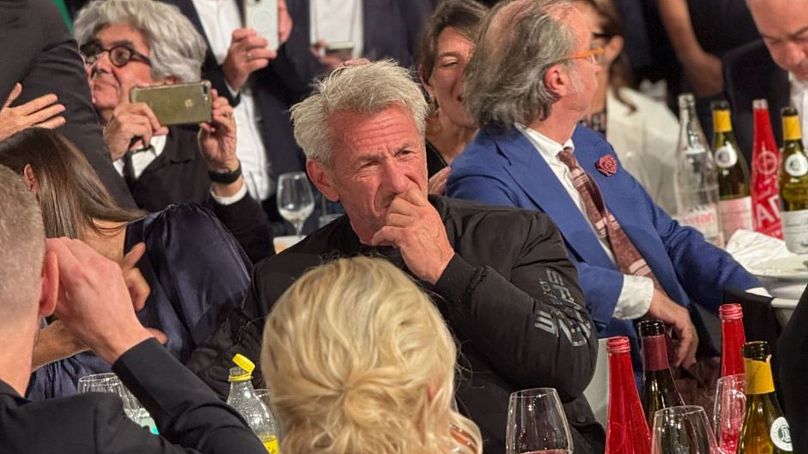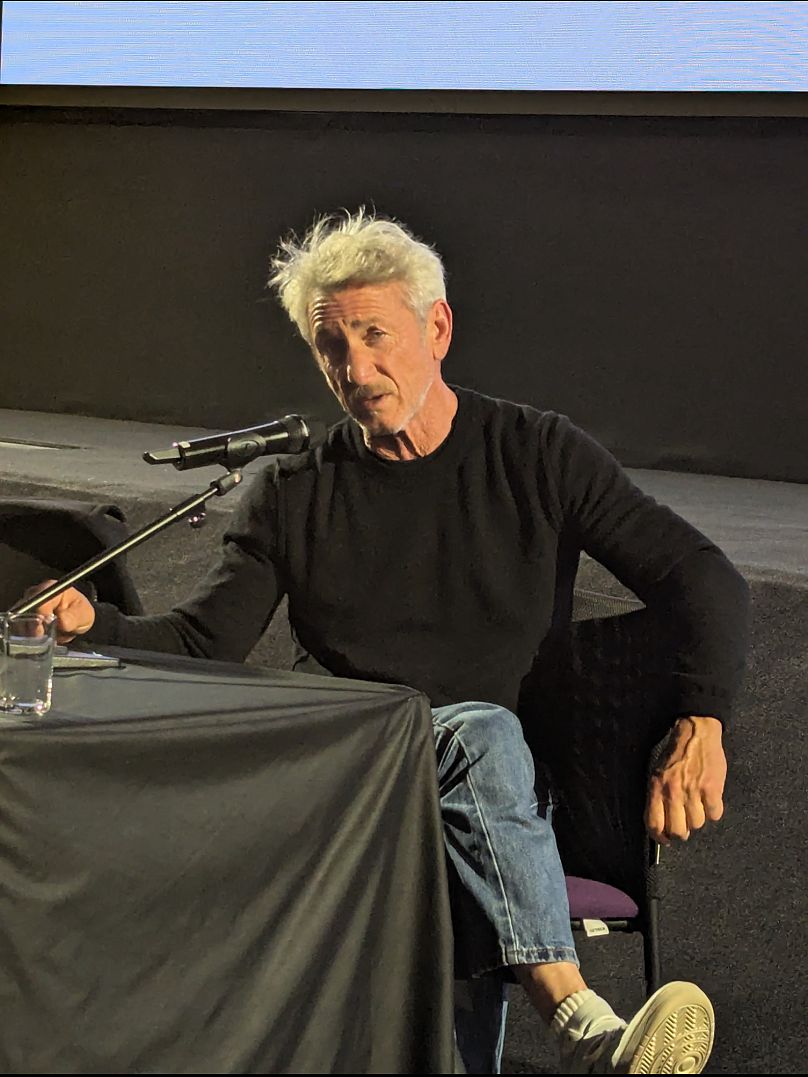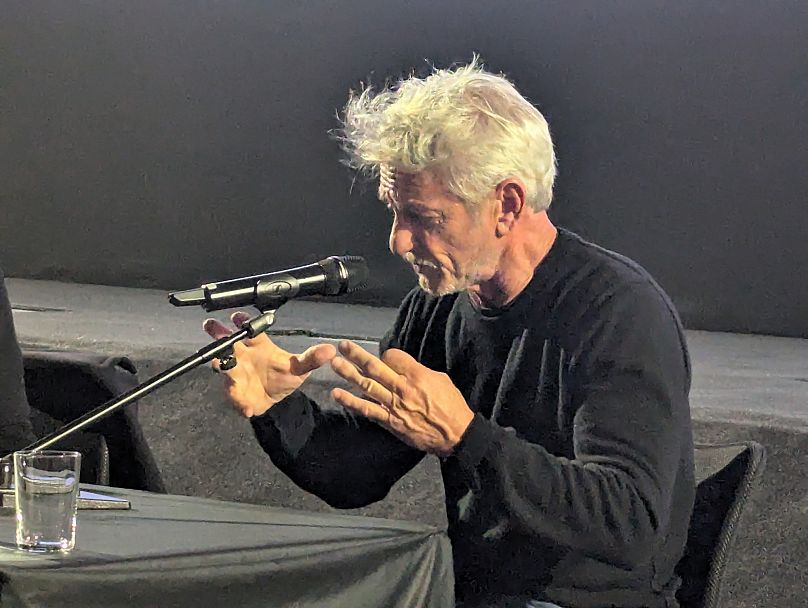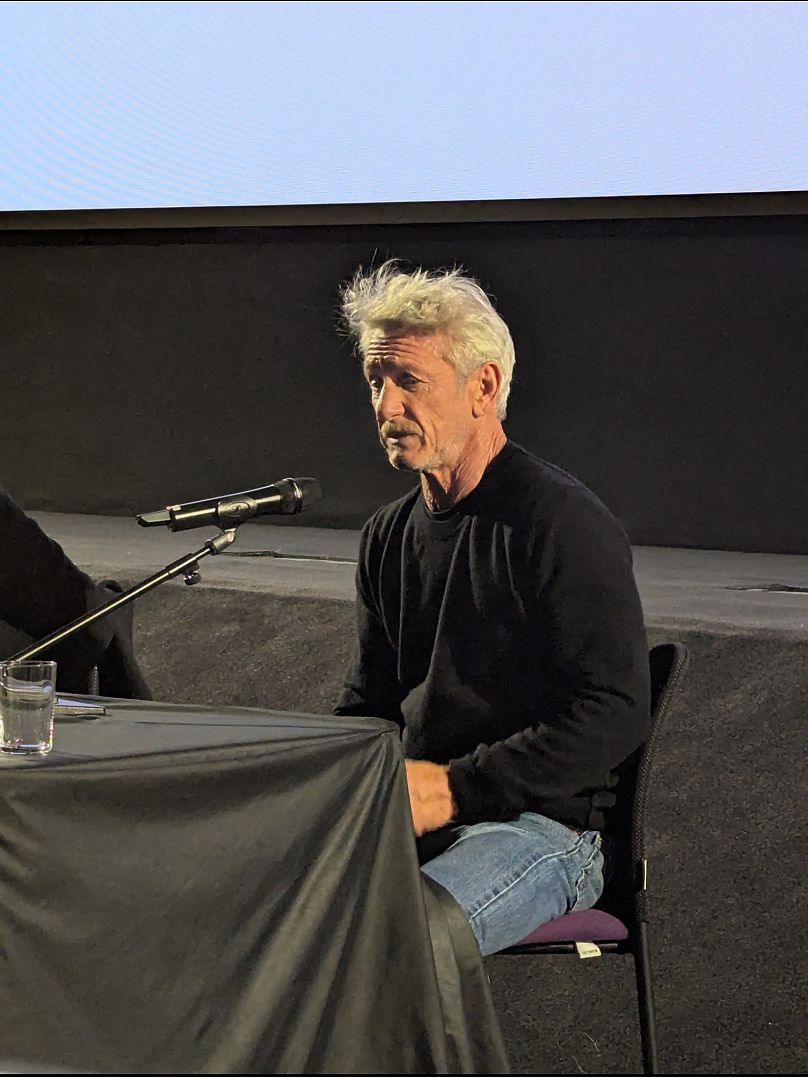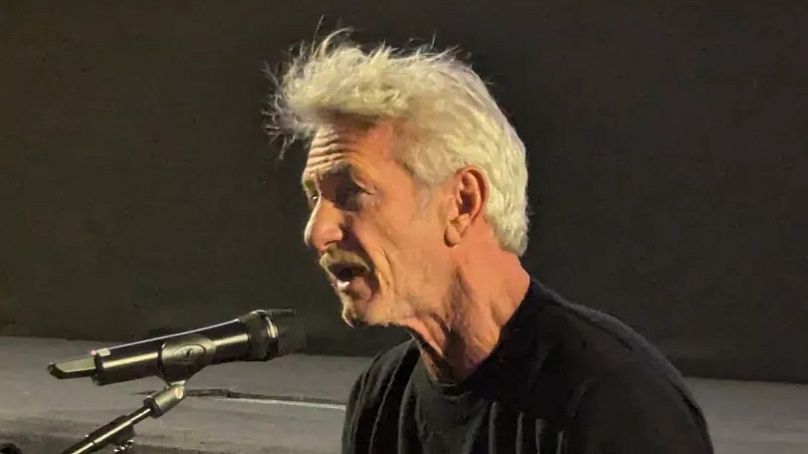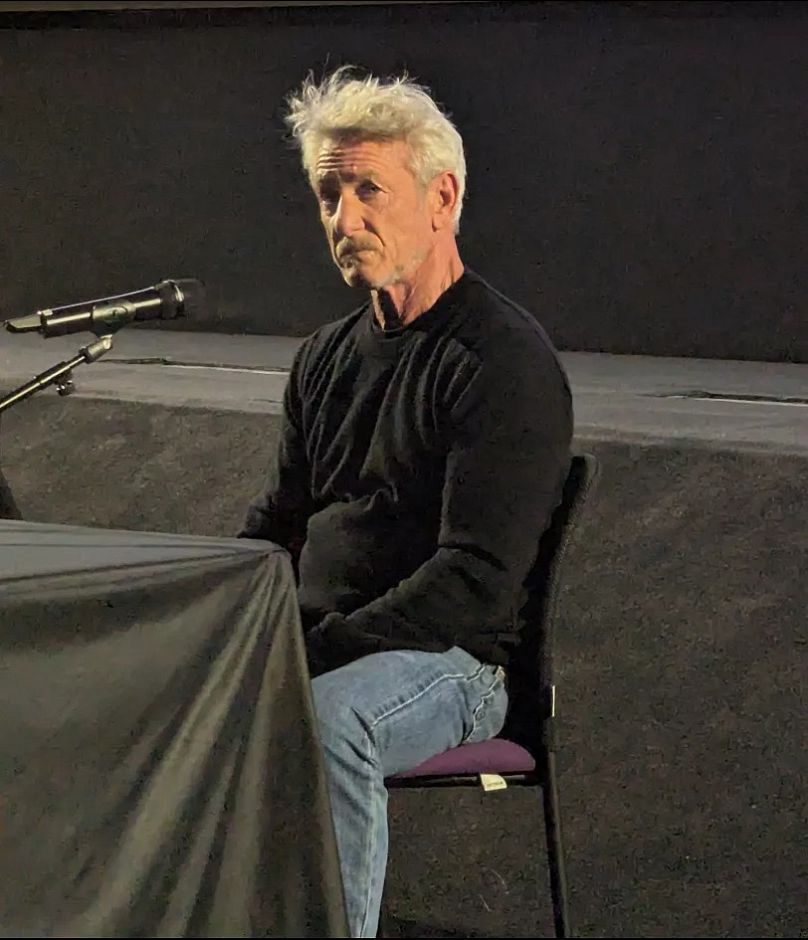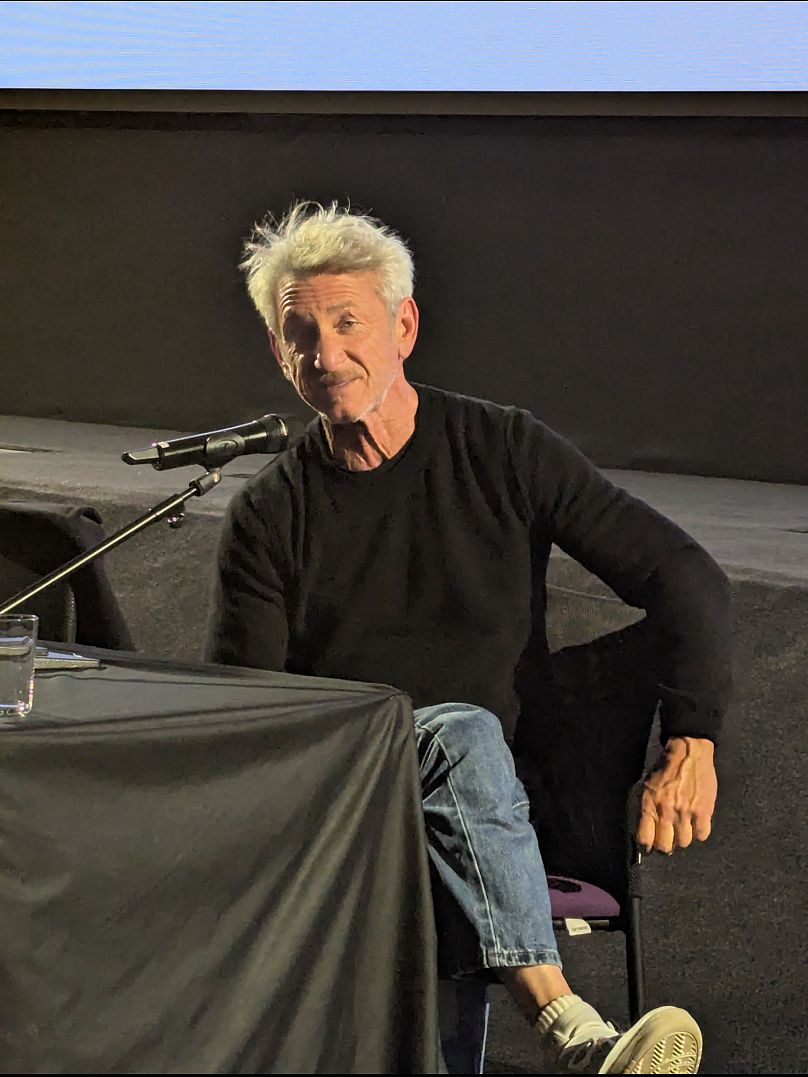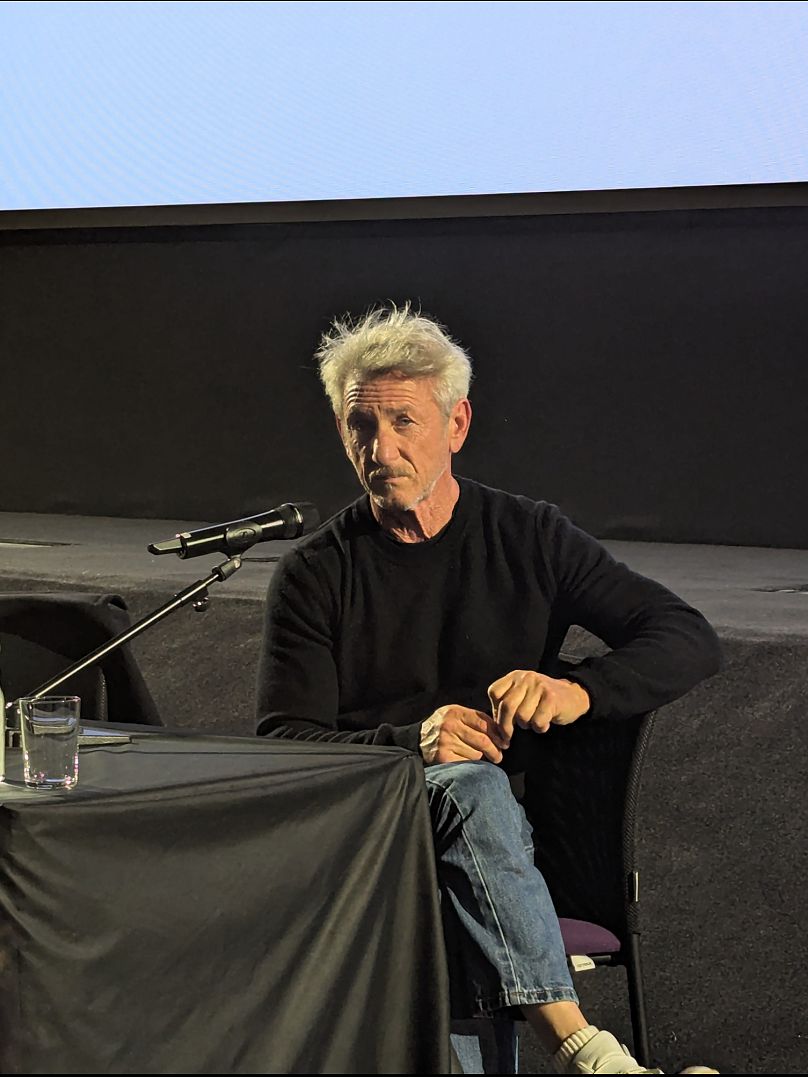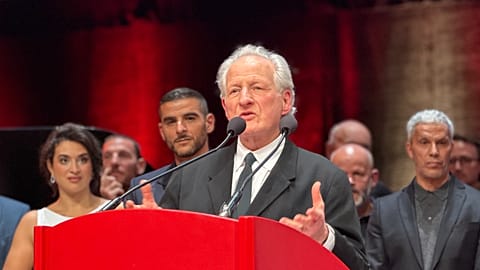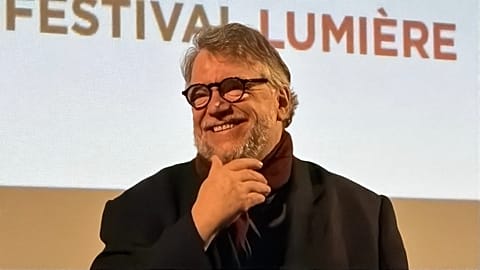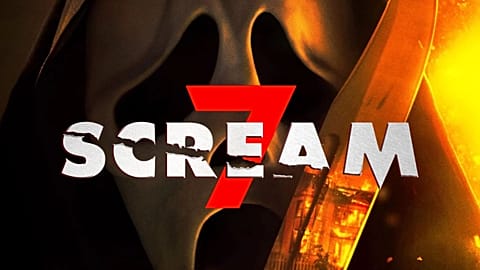As guest of honour at Lyon's Lumière Film Festival this year, Sean Penn had a date with cinephiles for a masterclass honouring his career. Euronews Culture were there. Here are some of the key takeaways.
Cannes boss and Lumière Festival director Thierry Frémaux issued something of a light warning prior to Sean Penn’s masterclass: this year’s guest of honour isn't a fan of talking about himself.
 ADVERTISEMENT
ADVERTISEMENT
 ADVERTISEMENT
ADVERTISEMENT
“It's not something he does very often. He's can be very shy and embarrassed,” explained Frémaux.
Maybe he was still not over this year's opening ceremony and the ensuing schmaltzy karaoke, which by all reports left the Oscar-winning American actor and director... shall we say, bemused.
Still, it’s no secret that the 65-year-old artist is reserved and not fond of too much adulatory hoopla.
He joins Terry Gilliam in this respect, who told Euronews Culture during his visit to the Lumière Festival that the customary pleasantries when it comes to these film events are not his bag.
“I do love celebrating cinema, but let’s not make more of a deal of it than it is!” Gilliam shared with us, with a twinkle in his eye. “Yes, movies are great, but there’s no use overdoing it – we’re not that great! Just show the fucking film already!”
No doubt Penn would agree.
Starting off with his head bowed, slightly hunched and routinely chewing on a toothpick, the actor best known for his acclaimed roles in Dead Man Walking, The Thin Red Line, Mystic River, 21 Grams, Milk and The Tree Of Life - among other classics - was generous with his answers, and did warm up as the event unfolded. That said, this is clearly not an exercise he enjoys too much.
He even asked for a vodka and tonic at one point...
“Can I get a vodka tonic? ... But like, can I?”
It never came.
Had the festival organisers not seen him steal the show in Paul Thomas Anderson’s latest opus One Battle After Another, in which he plays the menacing and gravelly voiced Colonel Steven J. Lockjaw?
After watching one of this year's best films - which we're betting will land Penn another Academy Award - one thing is clear: When Sean Penn asks for a vodka tonic, Sean Penn gets a vodka tonic.
Since the beverage never showed up, it was probably for the best that the masterclass – somewhat bafflingly for the paying (and ultimately disappointed) audience members who always look forward to asking their questions to an international A-lister – ran out of time.
It does remain a damn shame that no audience Q&A session was possible, as the discussion, while interesting considering an actor of Penn’s caliber and varied filmmography, skirted several topical issues – Penn being an outspoken artist and humanitarian.
Here are our key takeaways from the masterclass, held at the Pathé Bellecour:
On the clip reel shown before the masterclass, recapping his impressive career
"I noticed when watching this clip reel... It reminds me of a commencement speech that was given at a university once. Whoever was giving the keynote was giving advice to young people... I watched this, and I think: Use sunscreen! You see the change, and oh my God, what happened?!"
On preparing for roles and immersing oneself in characters
“The job... and I don't like to think about it too much, I just do it. Too much or too little. I've done both! In the end, it's really just coming straight out of the script. You're kind of feeling it innately. And if you're affected by whatever you’ve exposed yourself to or practiced, you know, great. As long as it's not becoming too conscious."
On playing a sadistic, fascist colonel in Paul Thomas Anderson’s One Battle After Another
“I think you're being too judgmental! That's a great example of a script... It was immediately there. Feeling like you're hearing music or something. I was giggling for the first 20 pages, thinking that Paul had actually... This is what he's doing now! It made me so happy, and it's just feeling like you already know the song he's playing, even if you’ve never heard it before. What I was dancing to, for better or for worse, was just this music that Paul had written."
On playing Harvey Milk in Milk
"He was so well documented. There was so much archival footage of him. So I made a loop of everything available. A video loop, and I would play it 24 hours a day for many months. Literally 24 hours a day. I’d turn the sound down at night, but I’d just live with it. And I found myself really regretting that I had never had the chance to meet this guy. Growing such an affection for him that I think that alone made some kind of channeling available. Just by feeling a kind of love for the guy."
On acting for Clint Eastwood in Mystic River
"I think adaptability is probably the thing that I would aspire to the most. So, for example, we made a movie with Clint Eastwood and he loves jazz music. Anybody who's followed Clint's career, he just does one or two takes mostly. He'll give you more if you want them, but he's generally happy after one or two. What that does is it tells all of the actors: be ready on take one or two, especially if you're sharing the frame.
If, let's say, it's a steady cam and all of the actors’ performances have to work together, it may be that you feel you could be better in take three. But cumulatively, because it's a Clint set where everyone's geared in for the movie, it's probably better to be prepared in take one and two. I always feel like - especially with theater, which almost enforces this debate - in movies, you can have very talented people who don't play well in the sandbox. So, you get incongruities and things not connecting - chemistry doesn't happen. I think that the adaptability there is just to understand where the director's vision is best served."
On that scene in Mystic River, when Penn’s character Jimmy Markum learns of his daughter’s murder
"There’s a story behind that scene. (The character) is somebody you could reasonably consider a confident person. When you leave work that day, you carry that that feeling. Now, it could be a corruptly confident person. It doesn't matter. It's the confidence that you take home.
Only when I read the script the first time, this one scene that I would not think about the whole movie until the day we shot. If I would read the script again, I would skip it. I read it the first time and I knew it was the enemy of life.
And so, I had this experience of this confidence... It was a good. I enjoyed the shooting of that movie. Whereas if you're playing with someone who doubts themselves, you can carry that home and that can be miserable.
I had been intentionally blinding myself to it. I have a daughter, I didn't want to think about his scene. God knows I didn’t want to replicate feeling it... So, I just kept myself in a kind of robotic mind, and I had noticed that the script said that a couple of policemen grabbed hold of my character to stop him. And it occurs to me that anyone in this room in those circumstances may not dominate a couple of big police officers, but you're going to hurt them. And I did not want to be burdened by false physicality in it.
I remember going to Clint that morning, and I just said that. He said: ‘I will take care of this. You go get your wardrobe on. And you can do anything you want when you get back here.’
So I came back and he had replaced the three actors playing police officers with about 15! And I don't know how many of you have been surrounded by 15 strong aggressive officers... But it beats Pilates in terms of a workout!
What you see in the movie, I am literally trying to hurt or kill all of them! If the scene works, it’s Clint Eastwood’s fault, because that's what you want from a director."
On the director (and poet) Terrence Malick - with whom Sean Penn has worked with on The Thin Red Line and The Tree Of Life
"I had met him... This is when he hadn't made a film for a long time... And I said, well, if you make a movie again, give me one dollar and the GPS coordinates, and I'll be there.
Terry, to me, at his best, is a film poet. More importantly, he's a poet.
As an actor, I tried to quit both of the movies I did with him a couple of weeks in! Because I found that I'd rather pay to see your film than be in it. Because I just feel like paint on your palette. I didn't know what movie we were making in either case. I should have understood that going in, because that's why he's so special. This guy deserves us all to just be a bit of paint on his palette.
You know, I don't know if it's available, but the screenplay of The Tree of Life I think is one of the great poems of the English language. It never does screen directions. It just flows and it's really extraordinary."
On what makes Jack Nicholson – which Penn directed in Crossing Guard and The Pledge – so special
"Somehow, there's some distribution of electronic impulses in his brain that coordinate with the expressions in his face that fill us with everything that is a movie star and an actor. He does have truly a dazzling mind.
I won't say on what movie - it was a movie between the two that I did with him - where I was in conflict with the producers. They were telling me that if I didn't move locations by the end of that day because it was going to go a day over schedule or budget, they were going to pull the power off the movie. They were going to shut it down. I was in a back and forth of expletives with them... And they came to location and demanded a meeting in the trailer.
I walked into the trailer, and the two of them were sitting there. These people that I had been screaming back and forth with... But then, just as they started talking, Jack walked in, and he was like: “Hey, fellas, mind if I join in?” And he knew that just by him sitting there next to me that this was going to pass. And then one of these producers started telling us about how excited he was about a strip bar in Los Angeles that he had been to, and that we should all go there by the end of the movie... I thought: ‘Wow, how quickly things change when you've got Jack with you!’”
On acting with Al Pacino in Carlito’s Way... and the glory of 'Adolescence'
"There is nothing you can do that’s going to stop Al from going forward with a scene. You might change all the dialogue, he doesn’t care. He will adapt and make a choice so strongly. I loved working with him in that way. You could suddenly change the choreography or just see where it went...
The challenge was, when you have a lot of people in the scene, those long shots that Brian De Palma does a lot of... It’s hard not to be aware that if you fuck up, everything has to be perfect again. You’ve got to do it again and so you have to fight being cautious.
But then I just saw 'Adolescence', Stephen Graham’s incredible show... So great. The whole show in one take - each one of (the episodes). And now, I feel I should be an accountant."
On how Into The Wild still resonates in the crazy world we live in
"I think there's, to begin with, a kind of Wanderlust that we all identify with on various levels. People to varying degrees are challenged by being pushed outside their comfort zones. And when someone is young, and in the way younger people feel disappointed and feel that society is not living up to its care and kindness obligations, in their purest thinking moment, they decide to not buy into all the things that have corrupted generation after generation after generation. In the extreme, that could be something like Christopher McCandless. But part of that is a Wanderlust that is present in all."
On a life as both an artist and a humanitarian
"It's always been to me like one thing. I don't know that I differentiate between getting up in the morning and going to my woodshop and building a piece of furniture from going into a movie or anything that I've done in the NGO space or the documentary Superpower (about President Volodymyr Zelenskyy’s atypical career from comedian to a wartime president). It all feels like you're always looking to be value-added.
Sometimes, you're not. Sometimes, you can catch yourself inflaming a situation. You have to weigh risk-benefit on everything - to the situation, I don't mean to oneself. It's not: Do you like making movies better, or do you like doing wood better? It's about how much do you need to express yourself and what is today calling upon you to express."
On summing up Penn as a performer, using the lyric from Eddie Vedder’s song ‘Guaranteed’, which featured in Into The Wild: “I knew all the rules but the rules do not know me.”
“I suspect this fits all of us... It just gets amplified when you make movies!”
The Lumière Film Festival takes place in Lyon, France, until 19 October 2025.




